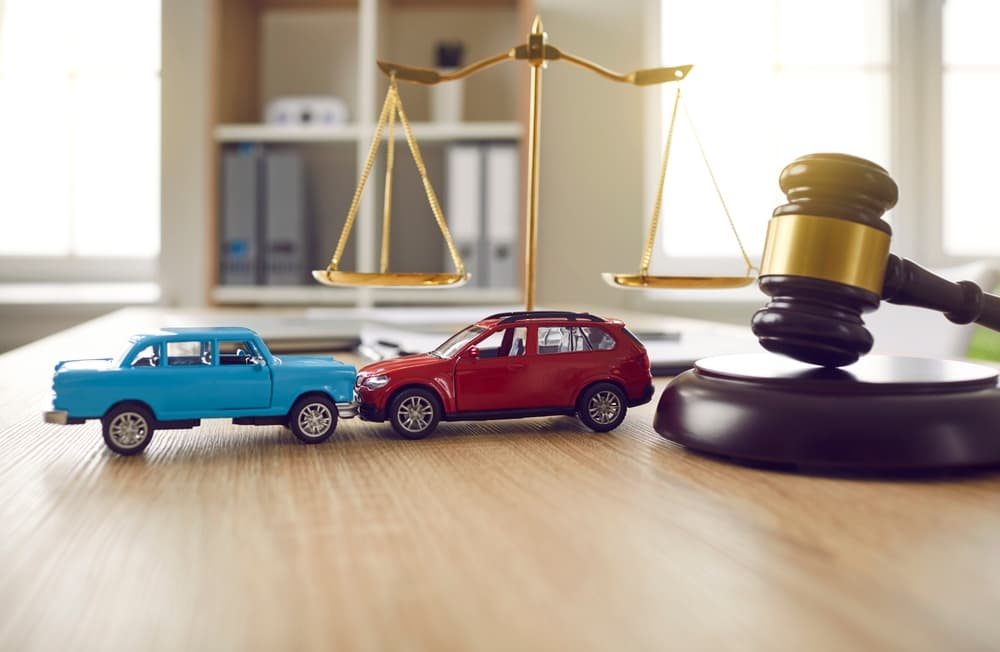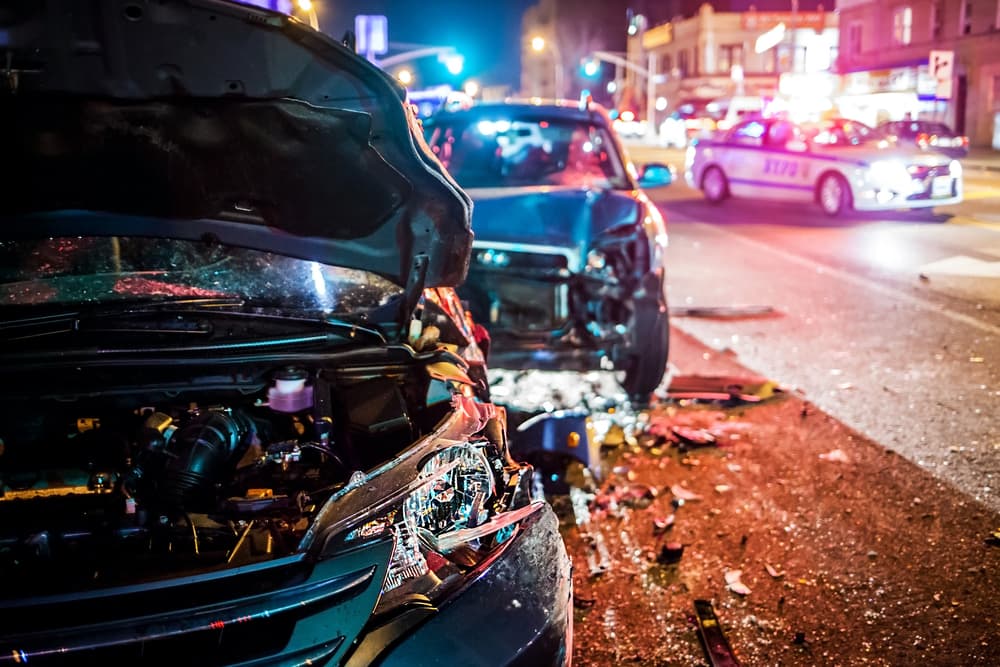When other people drive irresponsibly, serious accidents and debilitating injuries can result. In these cases, injured accident victims may be eligible to file a claim with the at-fault driver’s insurance company or a lawsuit against the driver.
The majority of car accident cases settle out of court rather than proceed to trial. In general, settlements offer a quicker resolution, sparing parties the time and expense of prolonged litigation. Additionally, settlements allow both sides to have more control over the case outcome rather than leaving it in the hands of a judge or jury. Settlements also provide certainty since the parties know exactly how much compensation they will receive, avoiding the uncertainty of trial outcomes.
Moreover, settlements often result in less emotional stress for the parties involved, as they can avoid the adversarial nature of courtroom proceedings.
If you recently suffered injuries in a car crash that was not your fault, an experienced car accident attorney can help you decide whether to settle or litigate your case. Your lawyer can also handle every step of the process for you and pursue the compensation you deserve.
Common Car Accident Causes and Injuries in South Carolina
Driver negligence is a leading cause of car crashes, resulting in various types of collisions and severe injuries. Negligence can manifest in several forms, including distracted driving, speeding, reckless driving, and driving under the influence of alcohol or drugs. Each type of negligence can lead to distinct types of crashes and injuries:

- Distracted driving, such as texting, talking on the phone, or adjusting the radio, diverts a driver’s attention from the road. This often results in rear-end collisions, where one vehicle crashes into the back of another. Injuries from these crashes can range from whiplash and soft tissue injuries to more severe spinal cord or head injuries.
- Speeding significantly increases the risk of crashes due to reduced reaction time and difficulty in controlling the vehicle. High-speed collisions can cause devastating injuries, including traumatic brain injuries, internal organ damage, and even fatalities. Moreover, speeding amplifies the force of impact, leading to more extensive damage to vehicles and occupants.
- Reckless driving encompasses a range of dangerous behaviors, such as aggressive maneuvers, tailgating, and running red lights. These actions can cause side-impact collisions at intersections, where the front of one vehicle strikes the side of another. Side-impact crashes often result in severe injuries, particularly to the occupants on the side of the vehicle that absorbs the impact.
- Driving under the influence of alcohol or drugs affects judgment, coordination, and reaction time, significantly increasing the likelihood of crashes. Impaired drivers may veer off the road, collide with stationary objects, or swerve into oncoming traffic, causing head-on collisions. These types of crashes are among the most catastrophic, often resulting in multiple severe injuries or fatalities.
In addition to the physical injuries sustained in car crashes, victims often experience emotional trauma, financial burdens, and long-term disabilities. Recovery from such injuries may require extensive medical treatment, rehabilitation, and psychological support, placing a significant strain on individuals and their families.
How to Prove the Elements of a South Carolina Car Accident Case Successfully
In a car accident case, there are four key elements of proof: duty of care, breach of duty, causation, and damages:
- Duty of care – This element refers to the legal obligation that drivers have to operate their vehicles in a reasonably safe manner to avoid causing harm to others. To prove this element, evidence such as traffic laws, driving regulations, and common safety practices can be presented. Witness testimony or expert opinions may also help establish what a reasonable person would do under similar circumstances.
- Breach of duty – This occurs when a driver fails to uphold their duty of care by engaging in negligent behavior, such as speeding, running a red light, or driving while distracted. Evidence to prove a breach of duty can include police reports, surveillance footage, witness statements, or even an admission of fault by the negligent driver.
- Causation – This element requires demonstrating that the at-fault driver’s (or defendant’s) breach of duty directly caused the accident and resulting injuries. Medical records, accident reconstruction reports, and expert testimony can establish the connection between the defendant’s negligent actions and the victim’s injuries. It’s essential to show that the victim’s injuries would not have occurred “but for” the defendant’s negligence.
- Damages – Finally, the victim must prove that they suffered actual damages as a result of the accident, such as medical expenses, lost income, property damage, pain and suffering, and emotional distress. Documentation such as medical bills, repair estimates, pay stubs, and testimony from medical professionals or mental health experts can be used to substantiate the extent of the victim’s damages.
To strengthen a car accident case, it’s crucial to gather as much evidence as possible to support each of these elements. This may involve collecting photographs of the accident scene, obtaining copies of medical records, interviewing witnesses, and consulting accident reconstruction experts. By presenting compelling evidence that demonstrates the defendant’s negligence – and the resulting harm that the victim suffered – the likelihood of a successful outcome in a car accident case increases significantly.
Deciding Whether to Settle or Litigate a Car Accident Case
Deciding whether to settle or litigate a car accident case is a critical decision that requires careful consideration of various factors.
Settling a case involves reaching an agreement with the other party outside of court. This can be appealing because it typically results in a quicker resolution and avoids the uncertainty and expense of litigation. Additionally, settlements can offer guaranteed compensation without the risk of receiving a lower amount – or nothing at all – if the case goes to trial. Parties may negotiate with the assistance of their attorneys or with a mediator to reach a mutually acceptable settlement amount.
On the other hand, litigation involves taking the case to court and allowing a judge or jury to decide the outcome. Litigation can be a lengthy and costly process involving court fees, attorney fees, and other expenses. It also requires dedicating time and resources to preparing for trial, including gathering evidence, conducting depositions, and attending court hearings. However, litigation may be necessary if the parties cannot agree on a fair settlement or if one party is unwilling to accept responsibility for the accident.
When deciding whether to settle or litigate a car accident case, several factors become important:
- Strength of the case – Assessing the strength of the evidence and legal arguments can help determine the likelihood of success in court. A strong case may give the accident victim leverage during settlement negotiations, while a weak case may warrant pursuing litigation to seek a more favorable outcome.
- Costs and expenses – Consider the financial implications of both options, including attorney fees, court costs, and the potential for a higher payout through litigation. It’s essential to weigh the expected costs against the potential benefits of each approach.
- Time and convenience – Settlements generally result in a faster resolution, allowing parties to avoid the delays associated with court proceedings. Litigation, on the other hand, can be time-consuming and may prolong the resolution of a car accident case.
- Emotional toll – Litigation can be emotionally taxing, requiring parties to relive the traumatic events of the car accident and endure the stress of a trial. Settlements, on the other hand, offer a more straightforward and less emotionally draining way to resolve the case.
Ultimately, the decision to settle or litigate a car accident case should be based on a careful assessment of the facts, circumstances, and goals of the parties involved. An experienced car accident attorney can help individuals make informed decisions and pursue the most favorable outcome, given their unique situation.
Common Types of Car Accident Litigation in South Carolina
Car accident litigation encompasses various methods of resolving disputes between parties involved in a car accident, including mediation, binding arbitration, or taking the case to trial. Each approach offers distinct advantages and disadvantages, and the choice depends on the circumstances of the case and the preferences of the parties involved.

- Mediation – Mediation involves a neutral third party, known as a mediator, who facilitates negotiations between the parties to help them reach a mutually acceptable resolution. Unlike a judge or jury, the mediator does not make a decision or impose a solution but assists the parties in finding common ground. Mediation can be less adversarial and more collaborative than litigation, allowing parties to maintain control over the outcome of the case. It also offers privacy and confidentiality, as proceedings are not part of the public record. However, mediation is usually voluntary, and parties must agree to participate. Additionally, if mediation fails to produce a settlement, the case may still go to trial.
- Binding Arbitration – Binding arbitration is a more formal alternative to mediation, where a neutral arbitrator hears evidence and arguments from both sides and makes a binding decision to resolve the dispute. Arbitration can offer a faster and less expensive resolution compared to litigation, as it avoids the time-consuming and costly process of a trial. Parties have more control over the scheduling and procedure of arbitration, and the outcome is final and enforceable, barring limited grounds for appeal. However, arbitration may lack the formalities and legal protections of a court trial, and the arbitrator’s decision may not always align with the parties’ expectations.
- Trial – Taking a car accident case to trial involves presenting evidence and arguments before a judge or jury, who ultimately decides the case outcome. Trials offer a formal and structured process for resolving disputes, with established rules of evidence and procedure. Parties have the opportunity to present their case in court and have a neutral third party adjudicate their claims. Trials also provide a public forum for resolving disputes and may result in a more thorough examination of the evidence and legal issues. However, trials can be lengthy, expensive, and emotionally taxing, and a judge or jury ultimately decides the outcome, which may or may not be favorable to the parties.
Factors that Can Affect the Value of a Car Accident Case
The value of a car accident claim or lawsuit is influenced by several factors that assess the extent of damages the victim suffered. Those factors may include:
- Severity of Injuries – The extent and severity of injuries sustained in the car accident can significantly affect the claim’s value. Serious injuries that result in long-term disability, chronic pain, or permanent impairment typically command higher compensation than minor injuries.
- Medical Expenses – The cost of medical treatment, including hospital bills, surgeries, medications, rehabilitation, and therapy, is a significant factor in calculating damages. The more extensive and ongoing the medical expenses, the higher the compensation sought.
- Lost Income – If the victim is unable to work due to their injuries, they may be entitled to compensation for lost income or loss of earning capacity. This includes both past and future income that the victim would have earned if not for the car accident.
- Pain and Suffering – Non-economic damages, such as pain and suffering, emotional distress, and loss of enjoyment of life, also contribute to the value of a car accident claim. These damages are more challenging to quantify but are essential for addressing the intangible harm that the victim experienced.
- Property Damage – Compensation for property damage to the victim’s vehicle or other personal belongings is another factor in assessing the value of a claim. This includes repair or replacement costs, as well as any diminished value of the property after the accident.
- Insurance Coverage – The involved parties’ insurance policies, including liability coverage, uninsured/underinsured motorist coverage, and personal injury protection (PIP), may limit the available compensation or affect the negotiation process.
Types of damages that accident victims can recover include:
- Economic Damages – These are tangible, quantifiable losses, such as medical expenses, lost income, and property damage.
- Non-economic Damages – Non-economic damages are intangible losses that are more challenging to measure, such as pain and suffering, emotional distress, and loss of consortium.
- Punitive Damages – In cases of egregious misconduct or recklessness, punitive damages may be awarded to punish the at-fault party and deter similar behavior in the future.
Overall, the value of a car accident claim or lawsuit depends upon the specific circumstances of the case and the extent of damages that the victim suffered.
Contact a Knowledgeable South Carolina Car Accident Attorney Today
Determining whether to settle or litigate a car accident case can be difficult. A knowledgeable personal injury lawyer in your area can help you decide the best way to move forward with your case and will aggressively advocate for your rights and interests.








